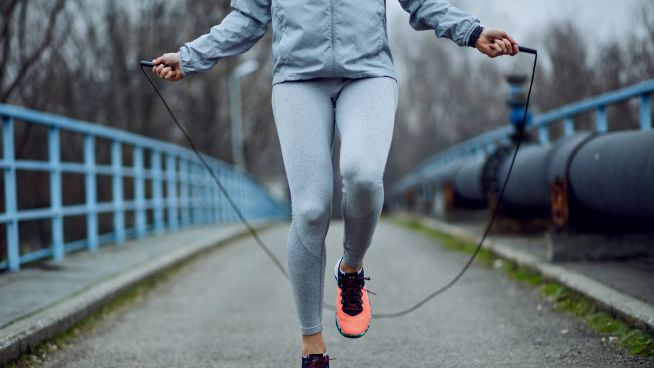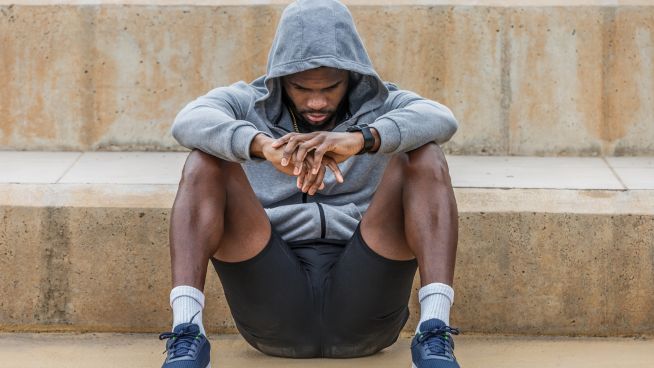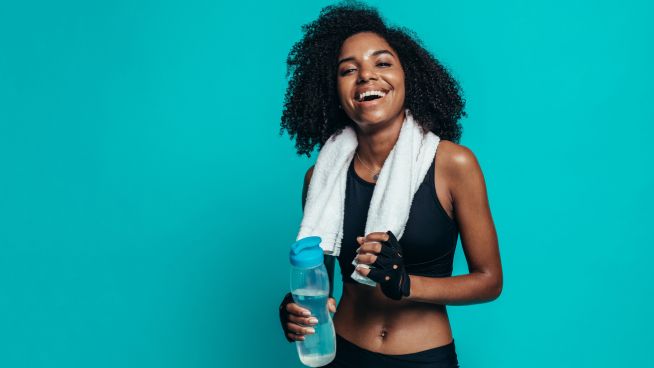All-Pro CB Chris Harris Jr. Reveals One Of The Biggest Mistakes He Made as a High School Athlete
![]()
Navigating against the Denver Broncos’ staunch defense can be an absolute nightmare for quarterbacks.
Last season, the unit held opposing offenses to a meager 199.6 passing yards per game—the least in the NFL. A big reason for Denver’s lockdown play? Cornerback Chris Harris Jr.
In 2011, Harris landed in Denver’s training camp as an undrafted rookie free agent. Over the last five seasons, his outstanding athleticism and sharp football IQ have helped him blossom into a Super Bowl champion and a two-time All-Pro performer.
RELATED: How A.J. Green Went From Eating Garbage to Chomping Kale Salads
To get to the proverbial mountaintop of his profession, Harris had to do a lot of things right. When he was a student-athlete at Bixby High School in Oklahoma, he was a gym rat and a film junkie. But one area where he slacked off was his eating.
“My nutrition was terrible. I used to go eat Sonic and drink pop. I was doing everything wrong. I wasn’t preparing my body for a game at all. And that’s one thing I regret a lot. I used to always get cramps during games, and I’d have to take a couple plays off. If I would’ve eaten better, I probably wouldn’t have had to worry about those issues,” Harris said.
Fast food and soda certainly could’ve given Harris some serious problems on the field and during training. Although there’s nothing wrong with an occasional trip to the drive thru, eating fast food on a regular basis can promote unnecessary weight gain, slowing you down. Most fast food meals are loaded with fat–a single SuperSONIC Double Cheeseburger serves up a whopping 72 grams. High-fat foods sit in the stomach longer, take several hours to digest, and leave you feeling bloated and sluggish—precisely the opposite of how you want to feel during crunch time.
Nowadays, Harris takes his diet as seriously as his work in the weight room or out on the practice field. “Nutrition is big,” he said. “The Broncos provide every meal, so we eat up there and everything’s healthy. It makes it easy on the players to get our nutrition right.”
Harris is so dedicated to proper nutrition that he even elected to get a voluntary blood analysis through the team to help him find any gaps in his diet.
“We do those tests—they don’t do it on everybody. It’s kind of a choice, but I did it. They said I needed more omega-3 fatty acids in my diet, so they gave me some supplements,” Harris said.
Harris isn’t the only pro athlete who seriously regrets their high school diet. Portland Trailblazers guard C.J. McCollum shared similar sentiments with STACK. Read about how his overhauled diet helped him win the 2016 NBA Most Improved Player award:
RELATED: The Overhauled Diet That Helped C.J. McCollum Ascend to Superstar Status
After Friends Told Him to “Get a Real Job,” Chris Harris Jr. Became a Champion Instead
RECOMMENDED FOR YOU
MOST POPULAR
All-Pro CB Chris Harris Jr. Reveals One Of The Biggest Mistakes He Made as a High School Athlete
![]()
Navigating against the Denver Broncos’ staunch defense can be an absolute nightmare for quarterbacks.
Last season, the unit held opposing offenses to a meager 199.6 passing yards per game—the least in the NFL. A big reason for Denver’s lockdown play? Cornerback Chris Harris Jr.
In 2011, Harris landed in Denver’s training camp as an undrafted rookie free agent. Over the last five seasons, his outstanding athleticism and sharp football IQ have helped him blossom into a Super Bowl champion and a two-time All-Pro performer.
RELATED: How A.J. Green Went From Eating Garbage to Chomping Kale Salads
To get to the proverbial mountaintop of his profession, Harris had to do a lot of things right. When he was a student-athlete at Bixby High School in Oklahoma, he was a gym rat and a film junkie. But one area where he slacked off was his eating.
“My nutrition was terrible. I used to go eat Sonic and drink pop. I was doing everything wrong. I wasn’t preparing my body for a game at all. And that’s one thing I regret a lot. I used to always get cramps during games, and I’d have to take a couple plays off. If I would’ve eaten better, I probably wouldn’t have had to worry about those issues,” Harris said.
Fast food and soda certainly could’ve given Harris some serious problems on the field and during training. Although there’s nothing wrong with an occasional trip to the drive thru, eating fast food on a regular basis can promote unnecessary weight gain, slowing you down. Most fast food meals are loaded with fat–a single SuperSONIC Double Cheeseburger serves up a whopping 72 grams. High-fat foods sit in the stomach longer, take several hours to digest, and leave you feeling bloated and sluggish—precisely the opposite of how you want to feel during crunch time.
Nowadays, Harris takes his diet as seriously as his work in the weight room or out on the practice field. “Nutrition is big,” he said. “The Broncos provide every meal, so we eat up there and everything’s healthy. It makes it easy on the players to get our nutrition right.”
Harris is so dedicated to proper nutrition that he even elected to get a voluntary blood analysis through the team to help him find any gaps in his diet.
“We do those tests—they don’t do it on everybody. It’s kind of a choice, but I did it. They said I needed more omega-3 fatty acids in my diet, so they gave me some supplements,” Harris said.
Harris isn’t the only pro athlete who seriously regrets their high school diet. Portland Trailblazers guard C.J. McCollum shared similar sentiments with STACK. Read about how his overhauled diet helped him win the 2016 NBA Most Improved Player award:
RELATED: The Overhauled Diet That Helped C.J. McCollum Ascend to Superstar Status
After Friends Told Him to “Get a Real Job,” Chris Harris Jr. Became a Champion Instead












